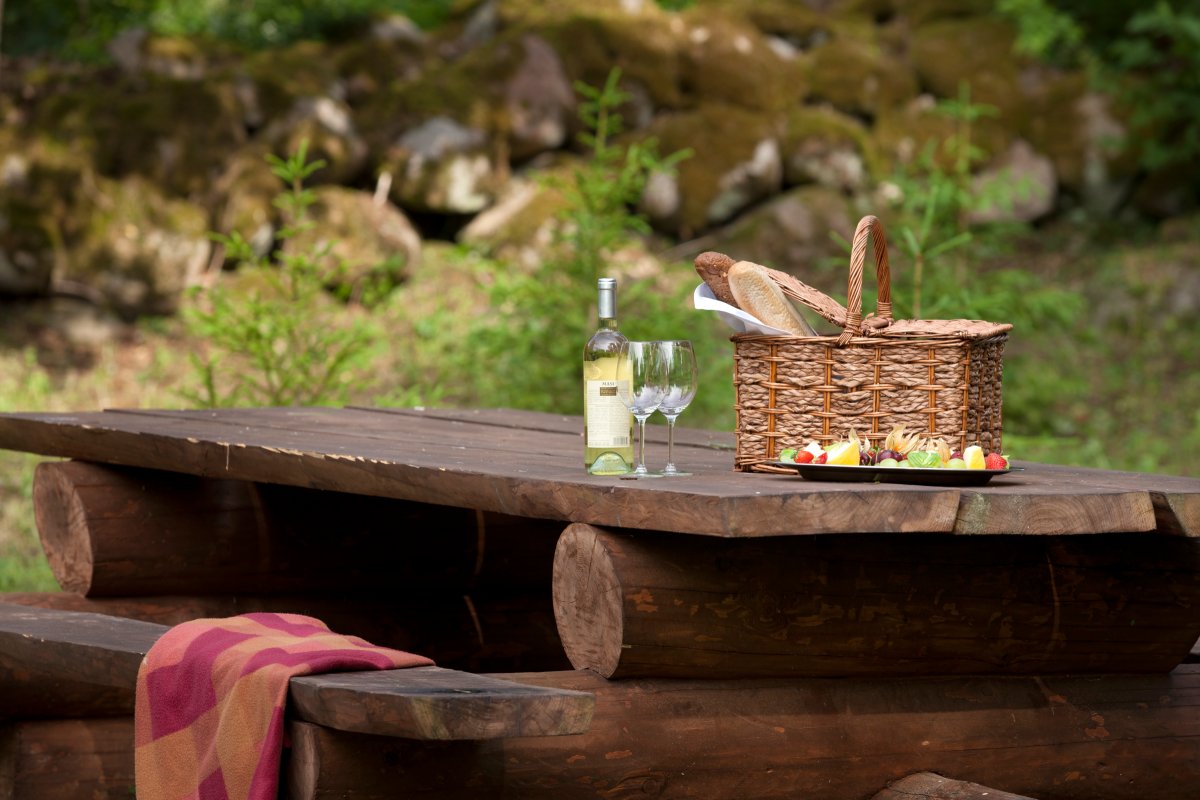Open drinking may officially be allowed at some river valley parks in Edmonton this summer, if a suggested city pilot project gets the go-ahead.

City administration will be suggesting a motion to approve the pilot at the April 28 Community and Public Services Committee meeting.
If approved, the pilot program would allow alcohol consumption from May 28 to Oct. 11 at 47 picnic sites in seven parks: Sir Wilfrid Laurier, Whitemud, William Hawrelak, Government House, Victoria, Gold Bar, and Rundle.
In a report released Thursday, the city said the pilot program includes both bookable and first-come, first-serve sites and drinking will be allowed from 11:00 a.m. until 9:00 p.m. daily.
“We’re talking limited quantities and hours of operations and responsible use,” Ward 3 Councillor Jon Dziadyk said, adding bylaws around public drunkenness, noise and litter would still be in effect.
The selected picnic sites already have tables, barbeques or fire pits, trash cans and receive daily service. Signs would be put up at the participating picnic sites.
The idea for the pilot program came after a motion introduced to council by Dziadyk was approved in January. He said these relaxed rules are needed now more than ever.
“I’ve advocated for this for a while now, and this is the summer where we’re going to have restaurants closed and we’re asking people to stay close to home, but we also want to get them out and to enjoy the city,” Dziadyk said Thursday.

Dziadyk said allowing drinking in parks could also benefit local restaurants that sell alcohol to go as part of their take-out menu — giving customers a one-stop-shop option before they crack a cold one, and dig into some food down by the river.
“This will give a little boost to our pride, I think, and hopefully a little boost to our restaurant industry and for mental health — just getting out of the house and enjoying the city in a different way.
“I think it’s just positive all over.”
Dziadyk believes pandemic discussions about increasing the size of outdoor patios, having winter patios, and different ways to change up streets led to wider endorsement of officially allowing drinking in parks.
Overwhelming support for drinking in parks
The decision to propose the pilot project to council members comes after the city researched how other jurisdictions treated drinking and did public engagement in February and March.
“If you can safely bring some alcohol for responsible consumption in the park, I think that’s wise,” Dziadyk said. “I know that not everyone is going to love it. But we did do a lot of engagement and I’m actually surprised at the results.
“There’s much, much more buy-in for this than I think we first anticipated.”
An online survey done between Feb. 22 and March 7 received more than 15,000 responses — the second-highest response rate for any public engagement conducted by the City of Edmonton.
“This is an example of robust engagement, and I am pleased with the results,” Dziadyk said.
Of those who took part in the survey, 71 per cent were strongly or somewhat support in favour of allowing drinking in parks.
“It’s good to know that we’re on board with being a bit creative, a bit edgy, a bit more European, a bit more modern, and providing opportunities to really celebrate Edmonton when we need to, and still socialize safely and explore different parts of our city in a way that maybe we haven’t before,” Dziadyk said.
Reasons for support in the survey included:
- Gas prices in Ontario, Quebec to jump to highest level in 2 years: analyst
- Canada’s income gap is growing. Will Budget 2024 help affordability?
- Shoppers faces proposed class action over claims company is ‘abusive’ to pharmacists
- What’s going on with the Cybertruck? Tesla seems to have halted deliveries
- The pilot completes an enjoyable food experience (85 per cent)
- Regulates an activity that is already happening (82 per cent)
- Increases opportunities for social interaction with friends and family (79 per cent)
Opposition largely focused on public safety, with the top reasons being:
- Increase in disorderly behaviour (92 per cent)
- The potential for drinking and driving (85 per cent)
- Safety concerns overall (82 per cent)
Some of the key considerations from survey respondents were ensuring noise and litter issues are looked after, signs with the rules are clearly displayed, bathroom access and ensuring enforcement to avoid any bad behaviour.
The city said the areas where open drinking would be allowed represents about 25 per cent of the total picnic sites in the seven parks.
“It’s still going to be important to have this compartmentalised,” Dziadyk said.
“So if this is not something you’re interested in, then you can go to a part of the park and a picnic area that’s not going to allow alcohol consumption.”
Peace officer to monitor picnic spots & enforce the rules
In order to reduce the need for additional enforcement, the city said the pilot project sites would be along existing peace officer patrol routes in the river valley.
COVID-19 public health restrictions would apply and peace officers would monitor and/or enforce infractions. They would also make sure alcohol consumption follows all city and provincial laws.
Peace officers would take a “patrol and monitor” approach, the city said, adding enforcement would focus on bad behaviour like trashing parks, excessive litter or noise, disrespect towards other park users, and fire prevention.
Public awareness
The city noted residents may become aware of changes to alcohol consumption rules but might not know the specifics, so communications and education programs would focus around that while also encouraging responsible consumption, and how to share public safety or disorder concerns.
Direct communication and signage costs are expected to be around $10,000, the city report said, adding the cost can be absorbed within existing budgets.
Some additional, unpredictable costs may pop up, such as calls for police enforcement, extra trash clean up, possible damage or vandalism repairs, or the need for additional communication.
At the end of the pilot in October, city administration would analyze data collected and report back to city council on future recommendations.
“The engagement to this point suggests that because of COVID and everything, it’s going to work this summer,” Dziadyk said.
“The summer of 2022 will either see this expanded, staying the same or roll it back.”

Alcohol rule relaxation has been ongoing for years
The pilot project has been years in the making.
In May 2019, the provincial government relaxed regulations around liquor consumption in Alberta’s provincial parks — a move Premier Jason Kenney dubbed “the beginning of the end of the war on fun.”
Previously, a complete liquor ban was in place over the May long weekend for eight provincial parks: Aspen Beach, Miquelon Lake, Garner Lake, Dillberry Lake, Pigeon Lake, Whitney Lakes, Jarvis Bay and Wabamun.
In June 2019, the Edmonton Youth Council made a push at city council, nudging the city to consider allowing alcohol in city parks.
Currently provincial laws gives some leeway for municipalities to allow public drinking in city-owned parks, as long as it’s in a designated site and during set hours.
The city report said looking at other Canadian and international municipalities provided “limited guidance on best practices and lessons learned,” but where applicable, they were taken into consideration.
Looking at rules around the world did not offer many findings that were directly applicable to municipal parks “as those jurisdictions have a historical view of allowing public alcohol consumption.”
The city sought the perspectives of Edmonton police, the Citizen Services Advisory Board, Alberta Health Services, and the AGLC when developing the pilot program.




Comments